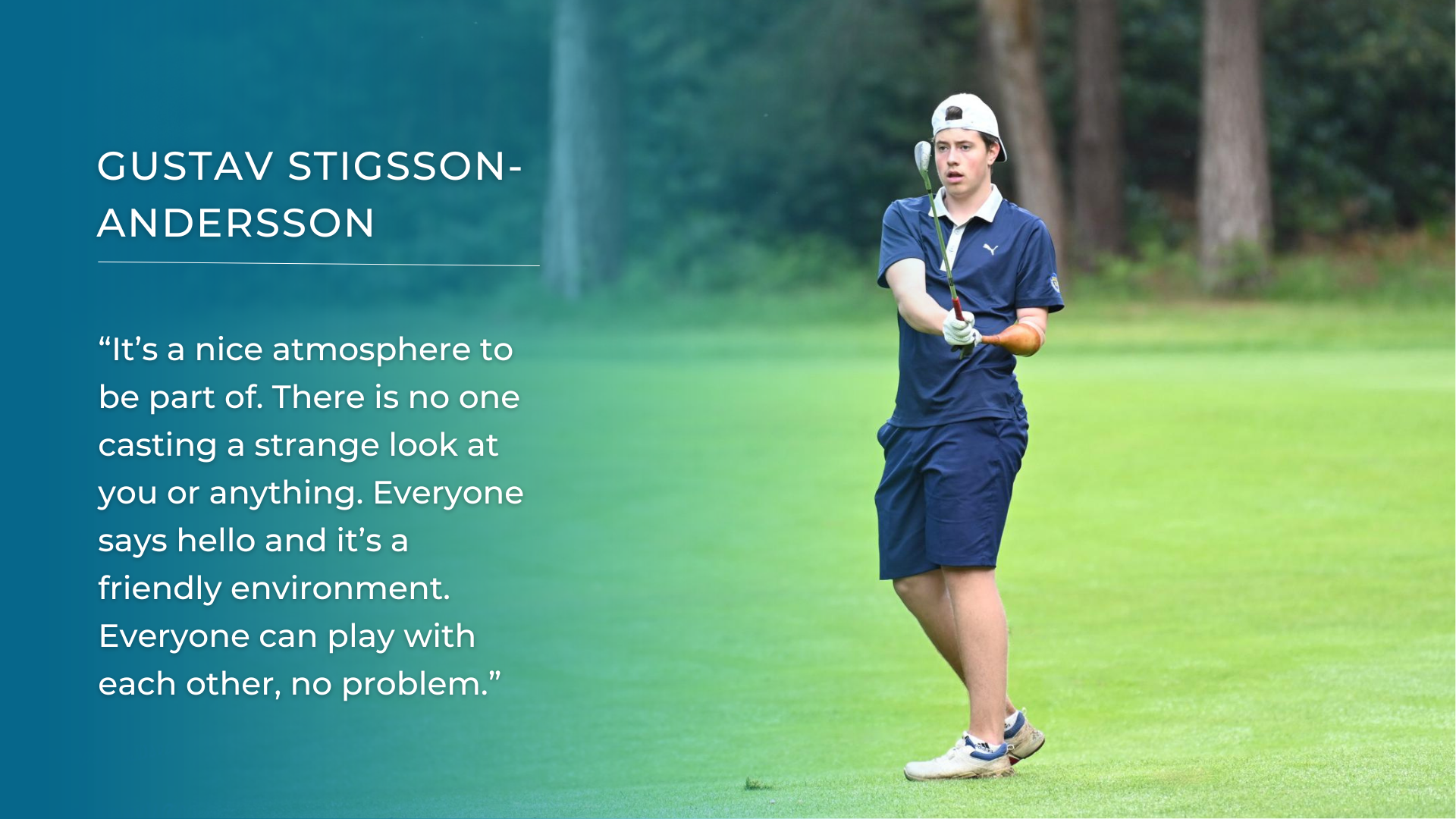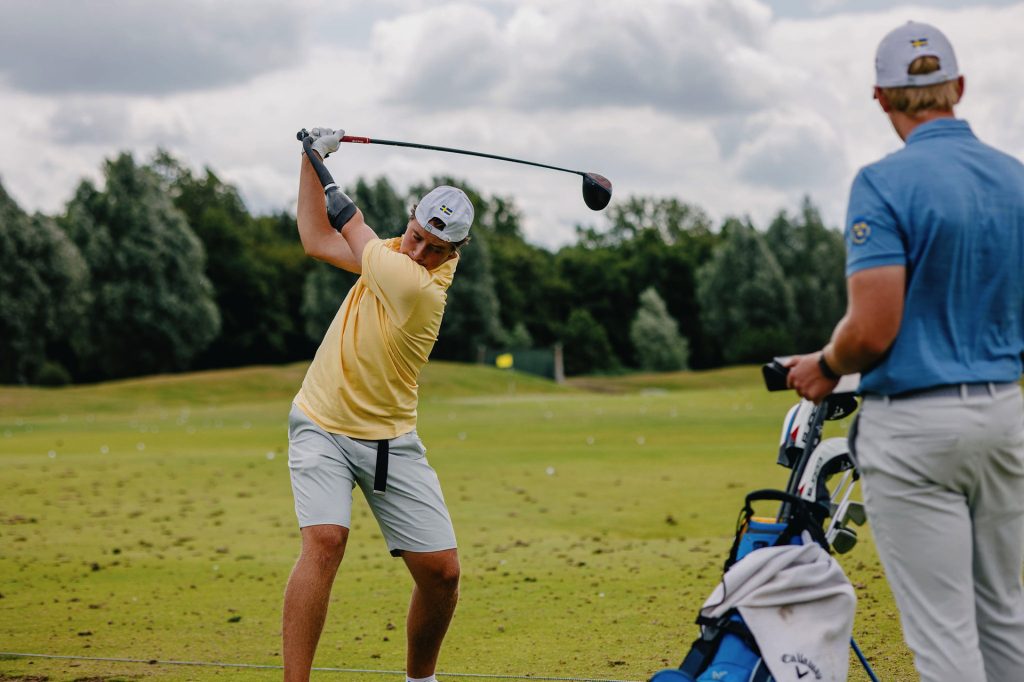
At Vila Sol, Portugal, on the practice range, 18-year-old Gustav Stigsson-Andersson is hitting mid-iron shots alongside fellow members of the Swedish team in preparation for the EDGA Algarve Open. Gustav is the youngest member of the national team present, only taking up golf six years ago.
Gustav’s iron shots are highly impressive (off a golf handicap of +1.5), both in the visible results – we watch each ball climb high into the Algarve sky – and it is similarly satisfying to listen to the crisp ‘click’ of each contact.
Those who know Gustav point to a startling rate of improvement in the last year or so.
Yet Gustav is not openly obsessional about what he is doing, wrapped in a bubble in which some young players find themselves. He appears to have a good awareness for what is going on around him. Currently a student of architecture at high school (studying buildings that are kinder to the environment), he seems to read people well too, and thus his confidence as a young man may well come from solid foundations rather than merely the bravado of youth.
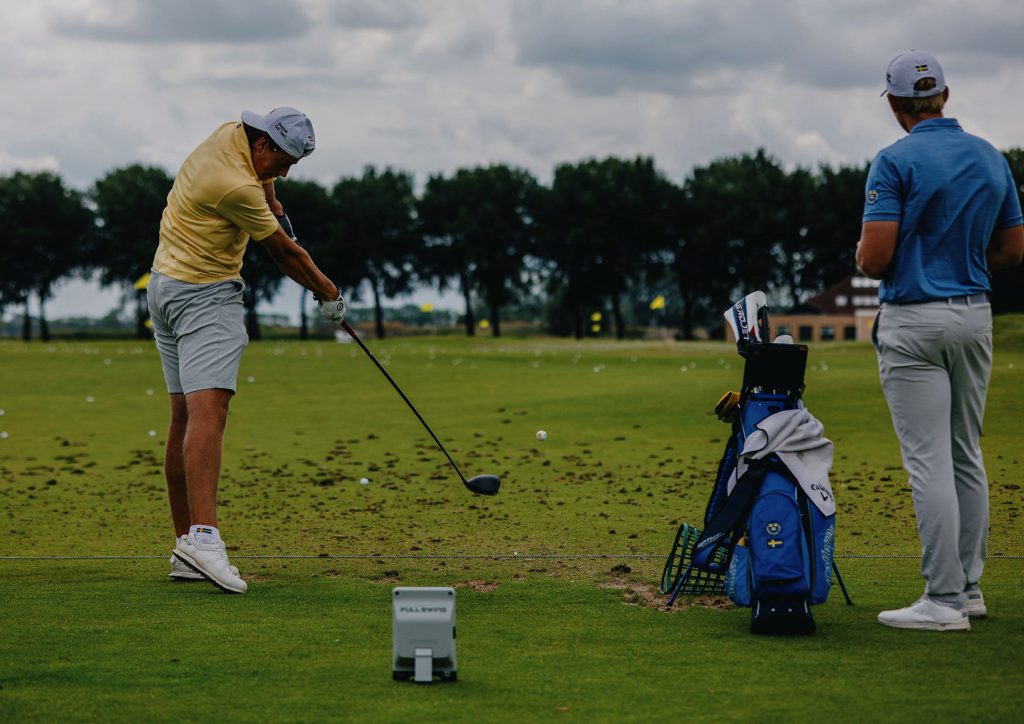
One of the first thing he tells me in fact is that he likes to encourage other young players at his local golf club, Karlstad, near to his home to the south of Sweden.
He says: “I think golf is the best thing ever, mostly mentally as it is so much fun. I strive to be a role model for golfers, not only for golfers with disability but also juniors at my club.”
When Gustav was born, the blood didn’t flow to his left arm properly and a surgeon needed to amputate. His condition he explains to others with a hint of a wry smile starting in a straight face. “I don’t have a left hand,” he says, which sums it all up fairly clearly.
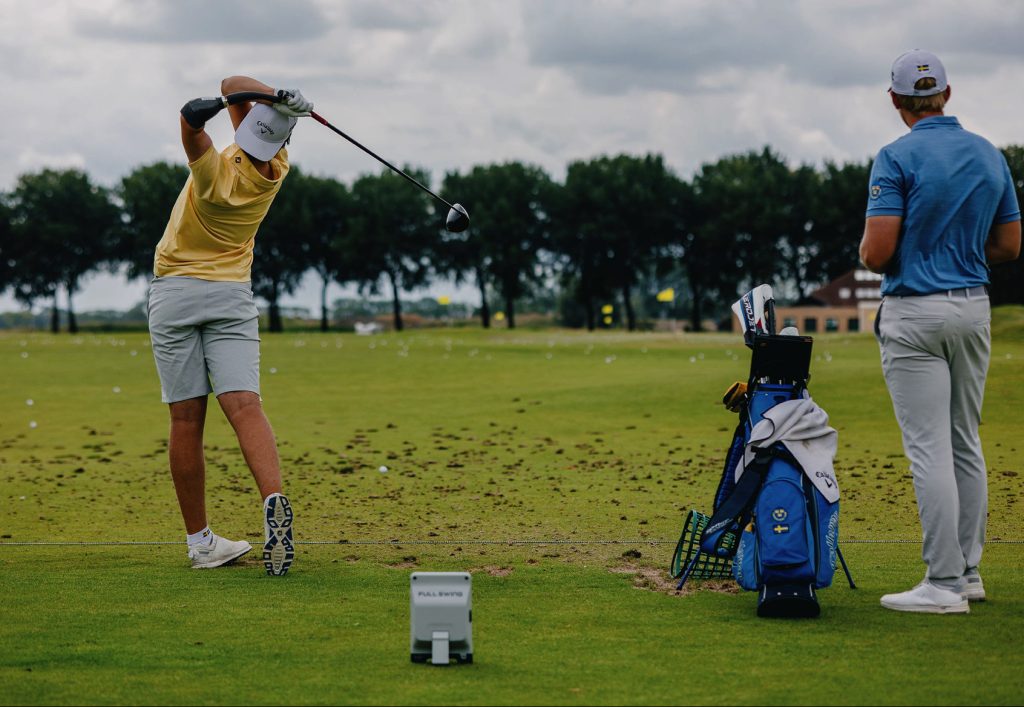
Gustav’s Dad, Niclas, started playing golf 10 years ago and his son followed him to the golf range one day aged 13, thinking it might be fun. The big breakthrough started to happen more recently.
“About maybe three years ago, my handicap dropped from 25 to 10 in one season,” he explains. “I went to play in some normal junior competitions, and then my coach told me about these events, in Sweden mainly, and so that’s how I got my eyes open for the tour for golfers with disability [G4D].
“My Dad had become really interested in the sport. There were people, a few, who said it would be too difficult for me to play. But a friend of ours told me, ‘Of course you can do it’, and helped me with some technique. Then I just tried with my normal ‘floorball’ [like hockey] swing. I had like a normal club and then tape on the top, just to get the arm stuck to the club and then swing normal.”
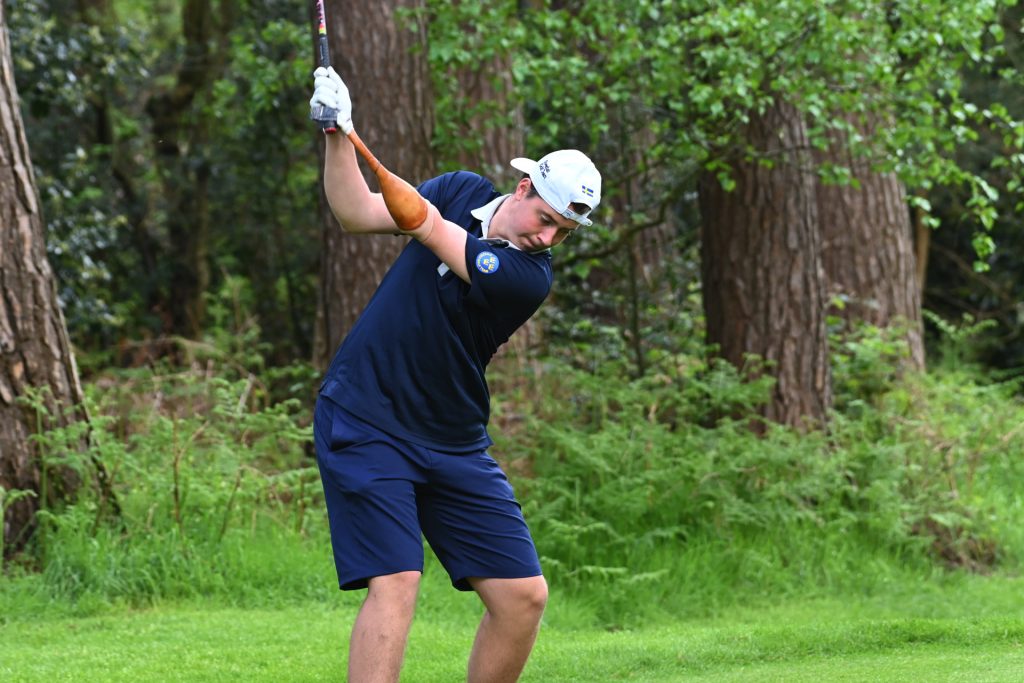
His father’s friend perhaps saved Gustav from the negative voices. “Yes, very much actually, it inspired me to really try and prove them wrong. When they look at me today and I hit a good shot, they’re like, okay, fine.”
The Swedish group of players at Vila Sol are in very good spirits. The sunshine is clearly a factor. Playing opportunities outdoors in Sweden can be less certain in the winter months. Thank heavens for Trackman and golf simulators indoors they say, while his home club coach Oscar Hertzberg becomes a valuable ally over this winter period to help with technique and training ideas. Gustav will get to enjoy one more EDGA tournament in Portugal in January, and also an exciting training and educational bonus, which we are keen to talk about after learning more about how he found golf…
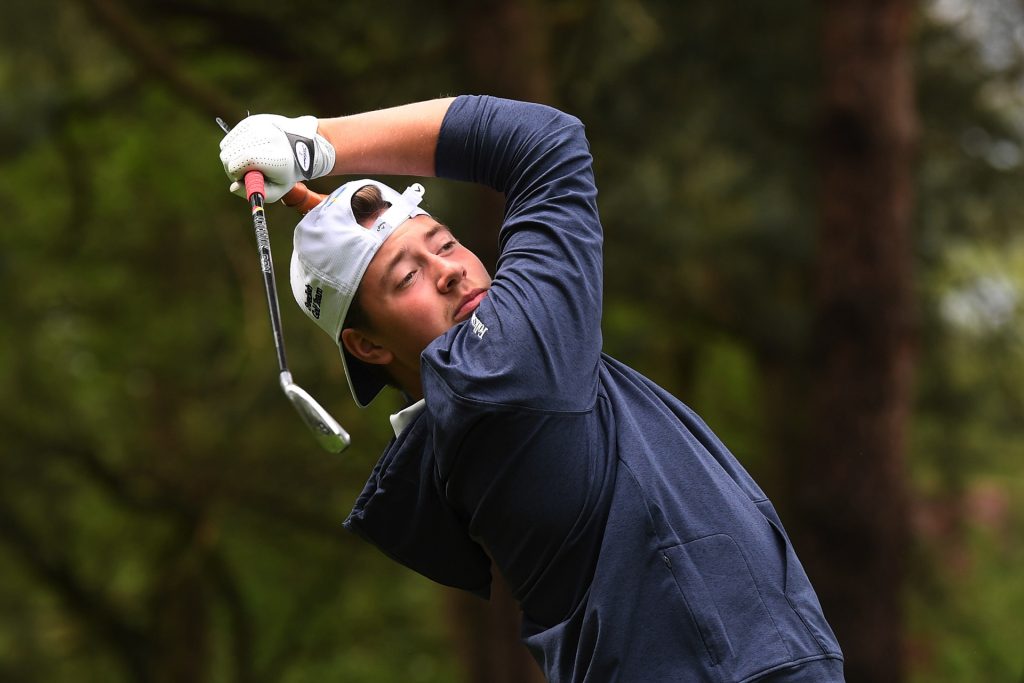
Gustav will tell you he grew up happily in a close family of parents, Dad Niclas and Mum Veronica, and his older sister Alicia. He made friends at school and enjoyed discovering sport: taking up floorball and hockey, including the ice hockey game ‘bandy’, using a prosthetic on his arm, and later finding that the swing movement of the shot in bandy was not too dissimilar from striking a golf ball. He never minded the questions about his arm that other children would inevitably ask.
Today he smiles when he admits he does enjoy beating his old friends at golf, his one arm often winning the day over their two. Meanwhile, the more he worked at his golf the more he enjoyed it, and the better he became at it: a neat equation that many of the best players tend to share.
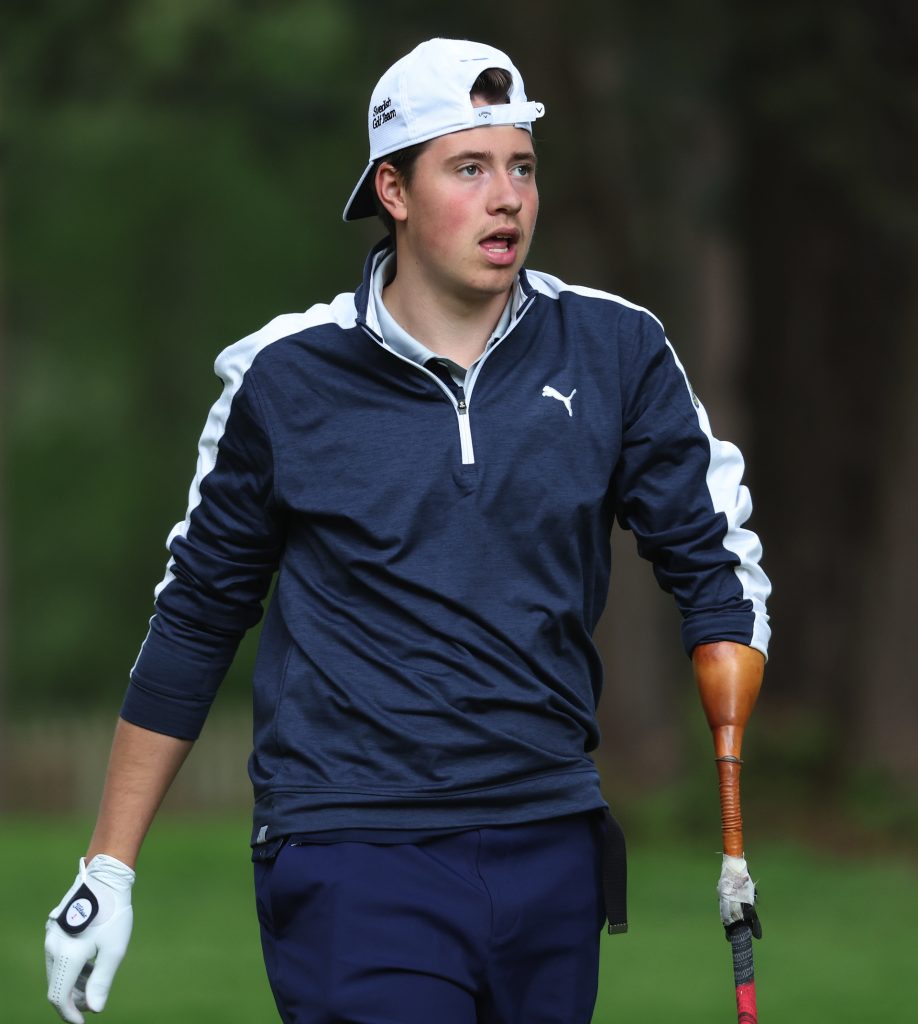
This writer first encountered Gustav in a video clip online from The G4D Open in May 2023, Gustav hitting a superb shot into a green at Woburn, presented on The R&A’s social media feed. Looking back, he says he felt privileged to play in the first ever G4D Open but it re-enforced that he had plenty to learn as a competitive player.
“There was a lot of learning because this was my first year with international events, so I think I didn’t play my best at Woburn, but I got a lot from the experience; a three-day event, and a lot of big players and so on. Very good for the future, to prepare me for the upcoming tournaments. And I’m in the Swedish golf team now, so that’s certainly inspiring, to play with a lot of good players like Rasmus [Lia], Johan [Kammerstad] and Marcus [Malo], who I can all look up to.”
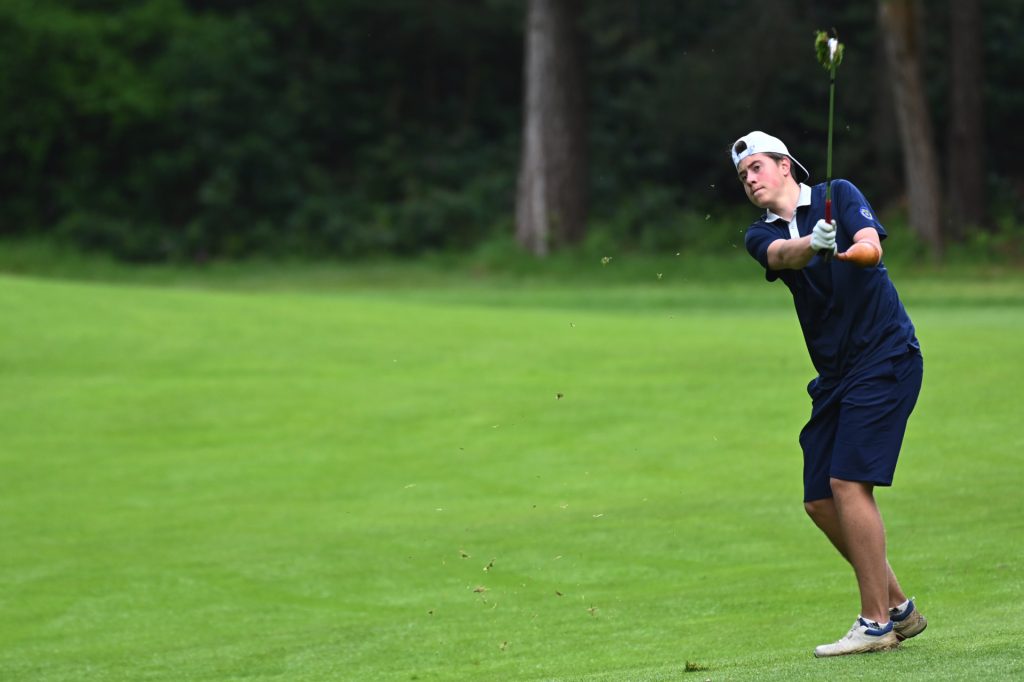
Rasmus and Johan are both winners on the G4D Tour, while at Vila Sol Gustav enjoyed a practice round with Marcus Malo, who is a fellow one-arm player with a great track record in the game. After Woburn, Gustav appeared in the EGA’s European Individual Championship, where he earned a top-20 place at the challenging golf course The Dutch in the Netherlands. Confidence was growing but this has also been helped by his choice of equipment, from custom-fitted clubs by Titleist, to a newly engineered prosthetic arm.
At Woburn he was using a prosthetic which was hand-made and multi-purpose, having a strong firmness (good for hockey), while his new one allows more flexibility and scope to cock the wrists, lengthening the golf swing. Orthopedic engineer Stewe Jönsson and TeamOlmed have custom built this new device precisely tailored for Gustav’s needs.
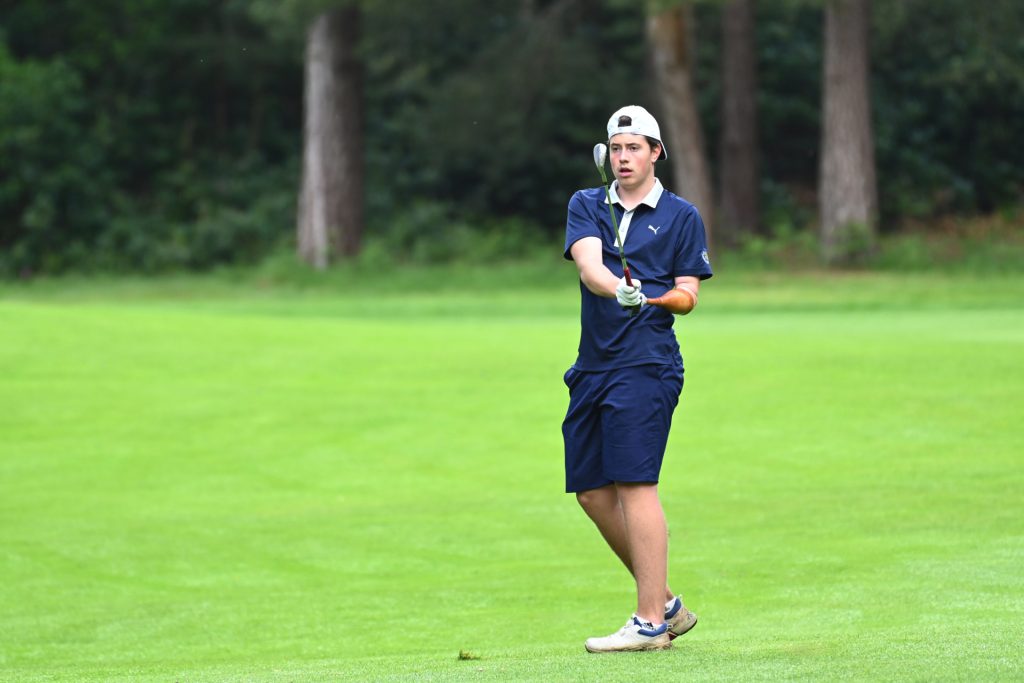
“Basically, the first one I had was a mix so I could play hockey and floorball as well. So it was stiffer, and this is a new grip with a little more flexibility so I get more wrist action. This is also a lot easier to just click it on and take off.”
Here, he gave me a quick demonstration, and the prosthetic comes off with the solid, dependable click of excellent engineering. Gustav realises the potential of the new prosthetic, certainly more freedom in the swing, but it is taking a little time to get used to as it secures to the club differently, and his right hand has to grip in a slightly different position.
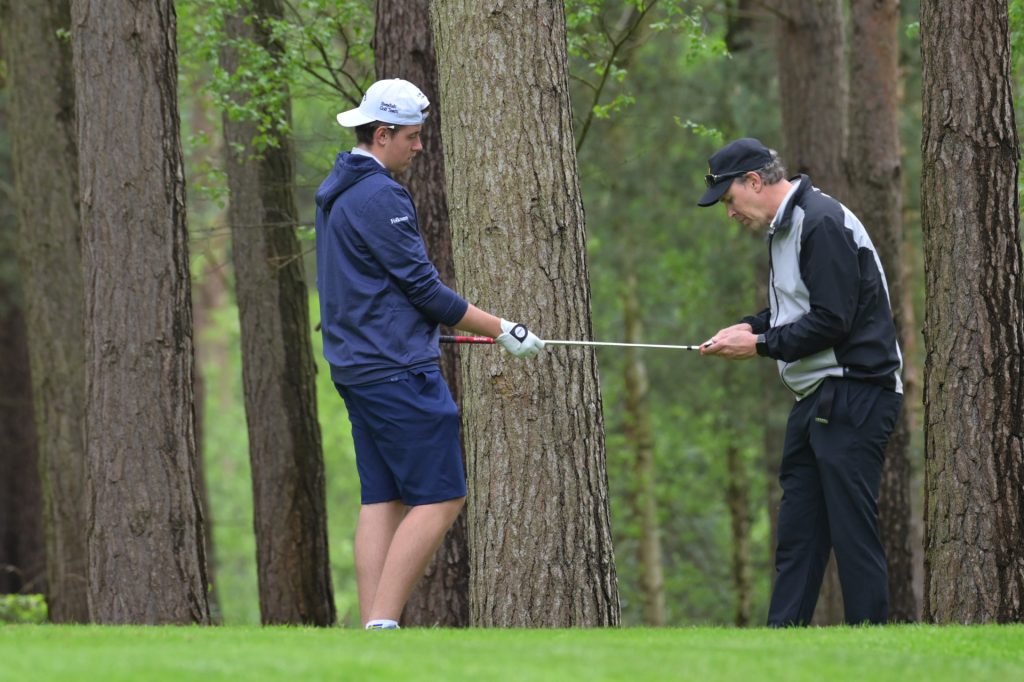
For any one armed player the grip, and maintaining the position of the grip, through the whole swing is likely to become an obsession because it is so important. While two hands can maintain the grip and thus the direction of the club with comparative ease, when using one hand, or one hand and prosthetic, any tiny error can create unwanted spin on the ball, resulting in poor direction and distance.
Gustav has a strong turn of the shoulders and upper body in the swing, but he also creates a lot of power via his lower body movement, the energy coming up from the ground through impact.
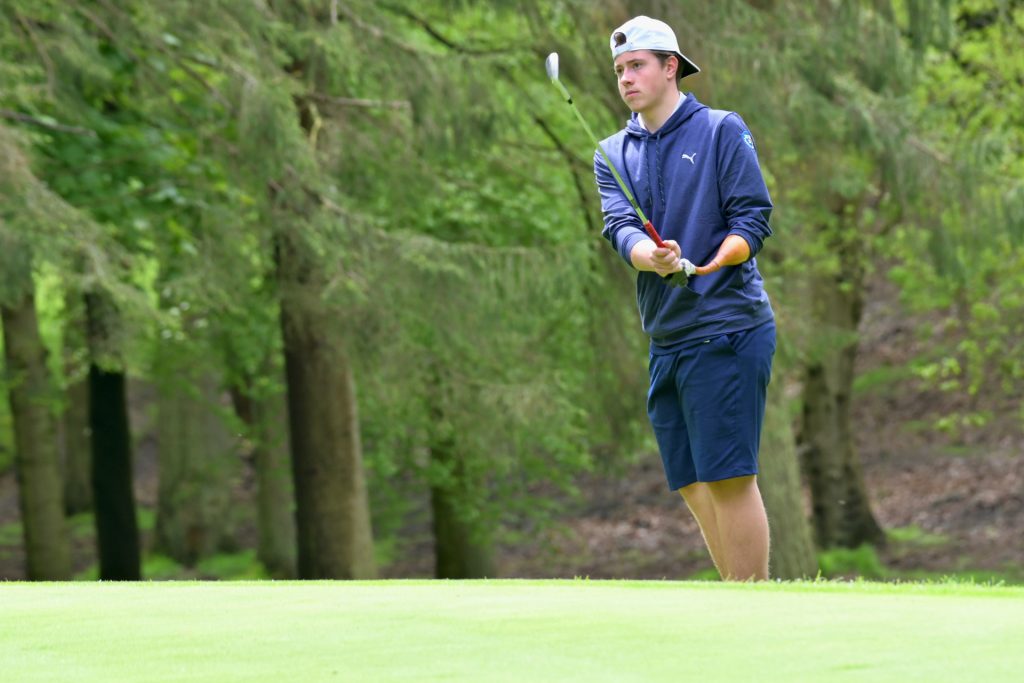
Frustratingly, he has suffered a back injury in 2023 which may have been caused by the way he has to swing the club, causing him to miss three summer G4D events in Sweden. He now believes he must build up the muscles on his left side to balance out the stronger muscles on his right side.
At 18 years-old it is natural to look ahead. Of the G4D Tour (run by the DP World Tour), the highest level of golf for the disabled, he says: “It would mean the world to me, competing against the game’s best players. My main goal is to become a top golfer on the G4D Tour, but also maybe winning some mini-tour events here in Sweden. Going forwards, coaching is also an exciting alternative.”
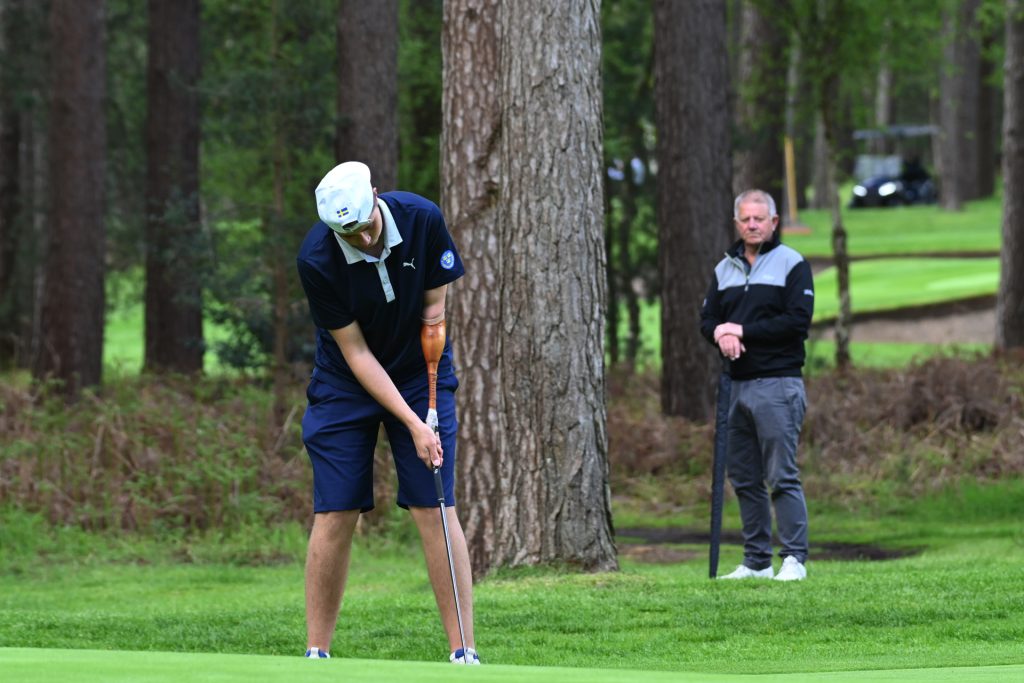
Gustav is one of 12 potential G4D Tour players of the future who will benefit from expert training in the new ‘Player Development Camp’ initiative (PDC) created by EDGA, starting this month (January 21-25). Those taking part come from 10 countries and four continents, meeting up at Quinta do Lago, Portugal, supported by the European Tour Group.
It will be a week of learning from experts on all facets of modern golf, including exercise and nutrition advice. The participants have all qualified to take part via progress up the World Ranking for Golfers with Disability (WR4GD).
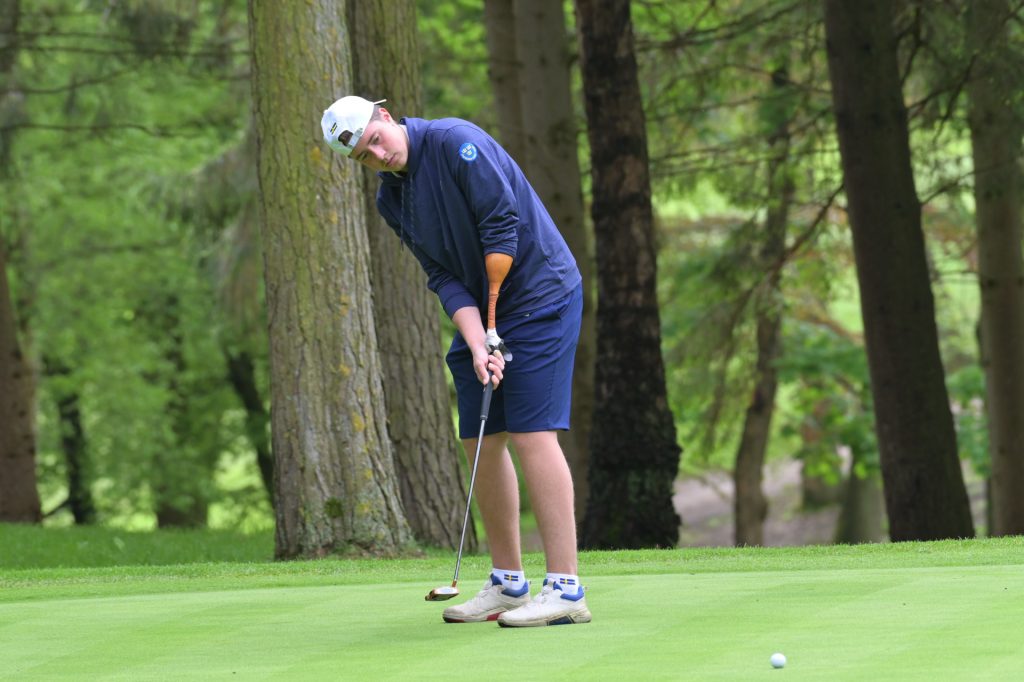
“I’m really stoked to have been selected to participate,” said Gustav. “Hopefully learning a thing or two from the professionals and experienced people, and getting loads of training in. I think it’s a great concept to help the prospects of golfers, to help them in their career.”
At Vila Sol, he said that while he is always highly competitive he likes the whole atmosphere of EDGA events (EDGA badges or supports more than 120 international tournaments every year).
“Everyone seems to like each other, it’s a nice atmosphere to be part of. There is no one casting a strange look at you or anything. Everyone says hello and it’s just a friendly environment. Everyone can play with each other, no problem.”
This positive feeling at G4D events is great, says Gustav, but he loves golf as a sport because it’s a game that people can play together regardless of technical ability, and it is truly cross-generational.
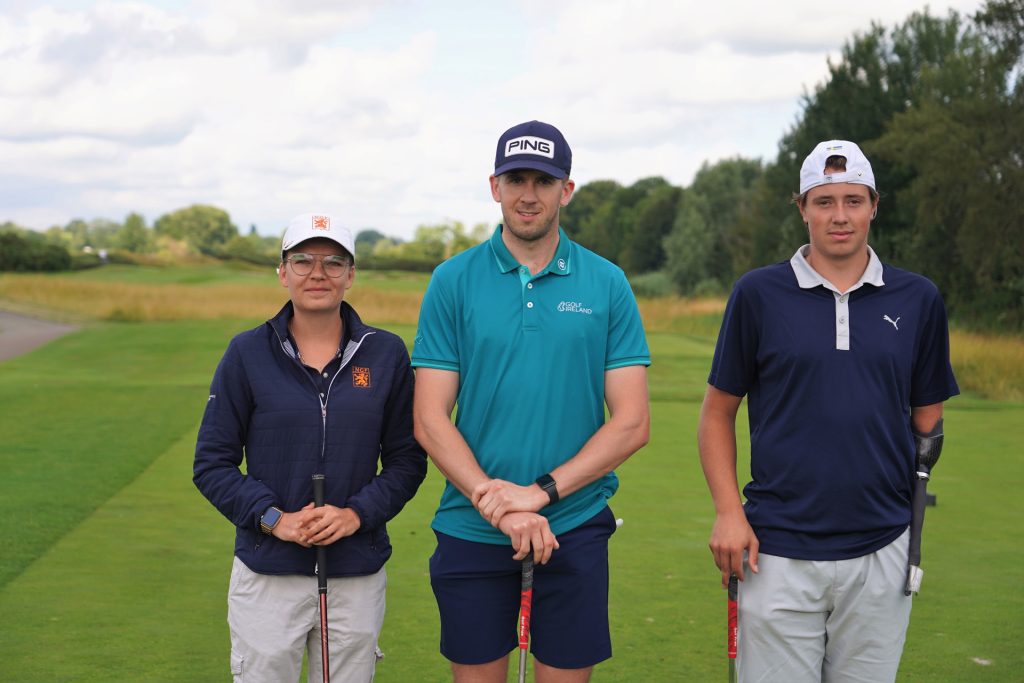
“It really is a fun game and very inclusive. Everyone can have fun on different levels.
“I think it’s basically the feeling of hitting good shots as well as hanging out, being with my family, playing rounds. I’m here [at Vila Sol] for about a week, so I get a few rounds with my family as well. Just being together and playing something we all like is really good fun.”
Family clearly means a lot (his Mum Veronica also took up the game). “Yes, my Dad especially, and my whole family of course. And Oscar, my club coach, is very good, helping. I can always give him a call right away, and he will take the call and answer questions.
“The last two summers I was a golf leader for kids at summer camp, and this summer I also supported the training for juniors at Karlstad GK. I think it’s really fun to see the players learn and develop, and regardless of whether they are juniors or adults, I like to help out golfers.”
Gaining inspiration from the stars, he follows a lot of Rory McIlroy, Tiger Woods and Dustin Johnson, whose relaxed style on the golf course Gustav subscribes to. He certainly looks relaxed on the practice ground at Vila Sol.
There is only one Rory, Tiger or Dustin, but there is also only one Gustav, and like those great names he has shown everyone that he too can play this game and knock it round in par or better using one full arm. Whether Gustav becomes an architect, helping make our buildings greener, or has a career in golf and perhaps becomes a coach, it strikes me that he will enjoy his work, and many people will enjoy working with him. And the more he enjoys it, the better he will become, and so on it goes in this wonderful game.
Contact EDGA
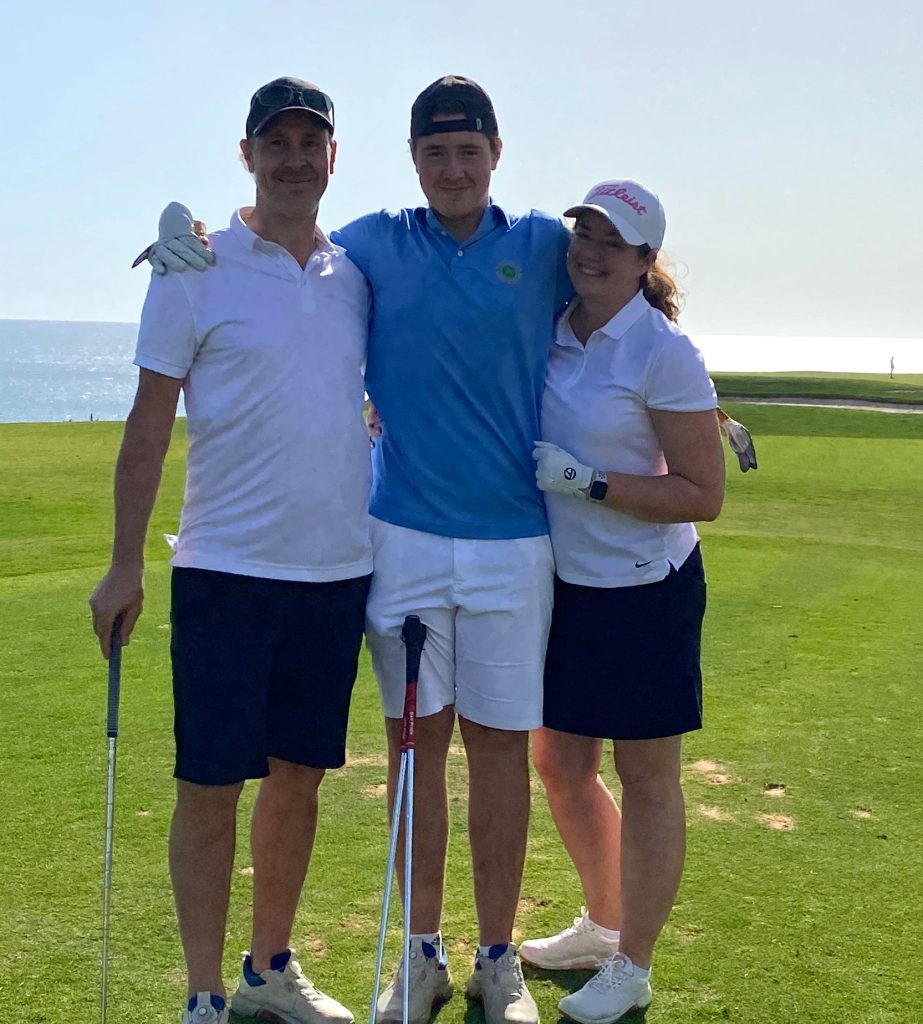
NB: When using any EDGA media, please comply with our copyright conditions


